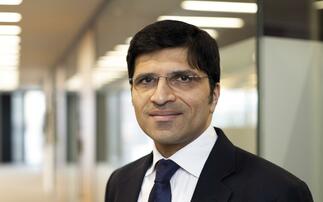Tracey McDermott, acting chief executive of the Financial Conduct Authority (FCA) vowed to break what she called the "regulate, de-regulate, repeat cycle" of financial services regulation, as she laid out her plans for future regulation to the annual Lord Mayor's City Banquet.
In a speech due to be delivered last night at Mansion House, McDermott acknowledged there is a need to soften the regulatory grip on firms - but warned against complacency and forgetting the "lessons of the past".
She told guests the regulator had come a long way towards eliminating the causes of bad behaviour in recent years but the current intensity and volume of regulation was "not sustainable" for either industry or regulators.
The danger, she said, was a "sensible desire" to reduce unnecessary regulation would allow the "pendulum to swing too far".
"We become caught in a loop where we regulate, de-regulate, repeat on an infinite cycle. And if we do that, if we take too big a step back when things are going well then history suggests we will fail to anticipate and prevent the problems of the future."
The regulator will focus on its three roles of enforcement body, policy maker, and facilitator of industry debate, she said.
It will continue to set and enforce rules and deal with foul play fairly and decisively, and to use behavioural finance to assess how well the market is functioning for consumers and firms.
It will also monitor the effect of its interventions on competition in the marketplace, with the aim to create "clear, consistent and predictable" boundaries in which firms still feel they can innovate.
McDermott said the FCA is prepared to review its work where needed, paying particular attention to its effect on stifling innovation. But it will also be quicker to act when it detects bad practice.
She was expected to say: "Regulators have too often allowed issues to grow in size and importance when rapid action may, although unpopular, have prevented much larger problems.
A sustainable long term model for regulation requires us to get this balance right more often than we have in the past."
Finally, the FCA intends to challenge firms' best practice and to push for "higher than required voluntary standards" as a tool to "find new solutions to old problems", she said.
McDermott was expected to say: "If we look at the history of regulation we see an unloved model. Bursts of activity after crisis or scandal followed by periods where regulation is less visible and less intense. There is no doubt that this approach has produced some important and enduring reforms.
"But, inevitably, among the many good and rational changes that arise from crises, there will be some that don't have the intended or expected impact. We should not be afraid to acknowledge that and make changes where required.
"Indeed, in many ways a periodic recalibration of the regulatory approach is both unsurprising and healthy. After all if regulation achieves its aim - of changing behaviour - the result should be a need for less, or at least differently focused, regulation.
"But in that recalibration we must be conscious of the lessons of the past."
Further reading:
FCA cuts back on client communication rules
Five million more would pay for advice (if it cost less) - report
Access to advice probe begins with look at robo-advice












